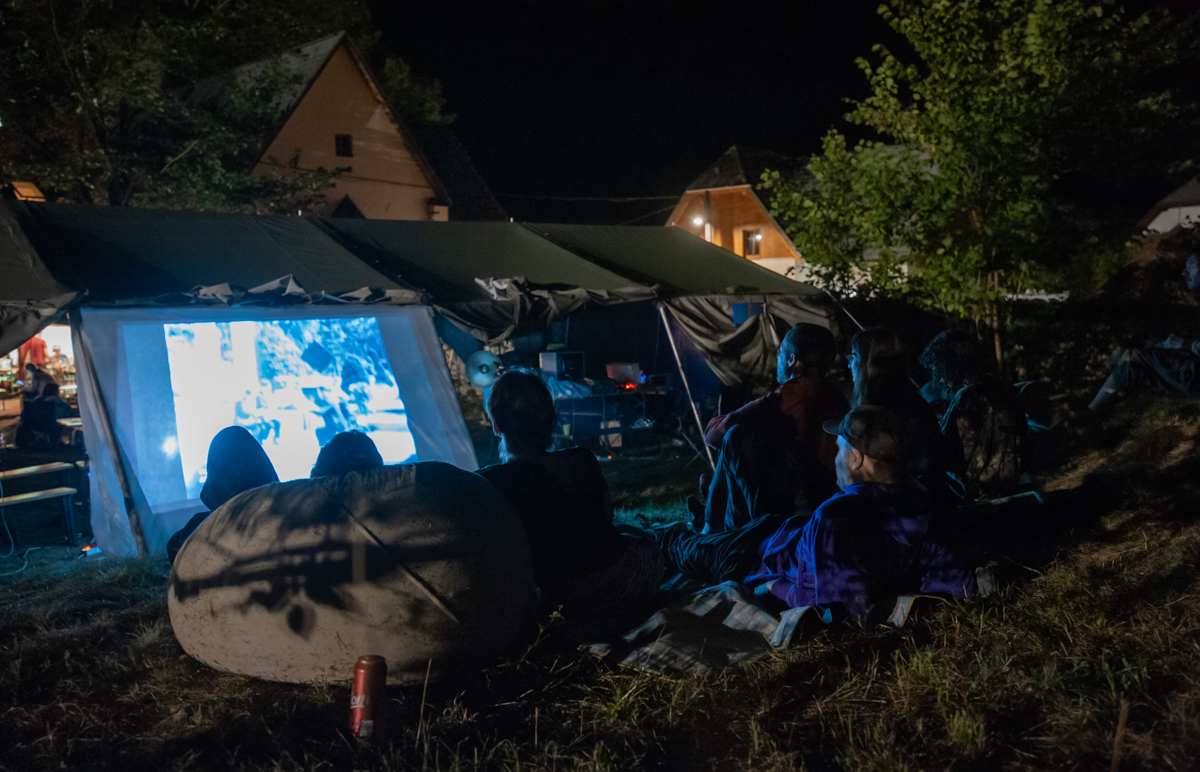Alicia Champlin provided a meditative introduction to Wednesday, inviting the participants to a cymbal sound bath. According to Thomas, who was briefly interviewed before lunch about his experience of the fourth day of PIFcamp, Alicia completely hypnotized the group. Afterwards, the visitors lay down in a meditative state, which our interviewer describes as a wonderful, long echo.
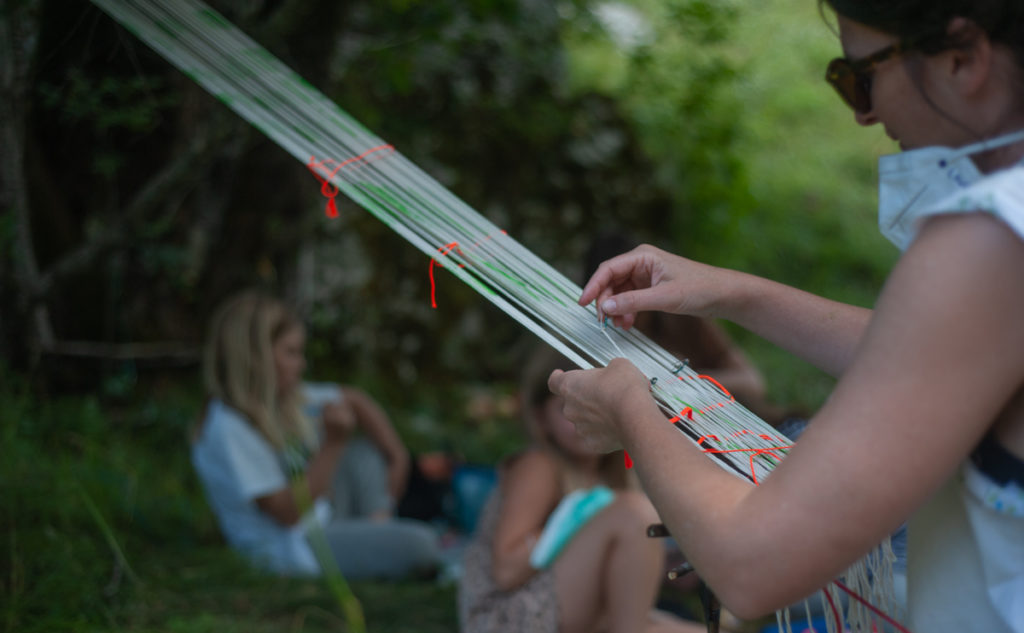
After the camp had settled down, the 10 active participants gathered for Ludwig’s workshop on how to make preamplifiers from old vacuum tubes originally designed for use in car radios. Thomas particularly liked the pace of the workshop, with participants soldering in harmony, moving between the stages of fabrication together, and even running into a problem together at the end. But of course, in the end, they also worked together and solve it!
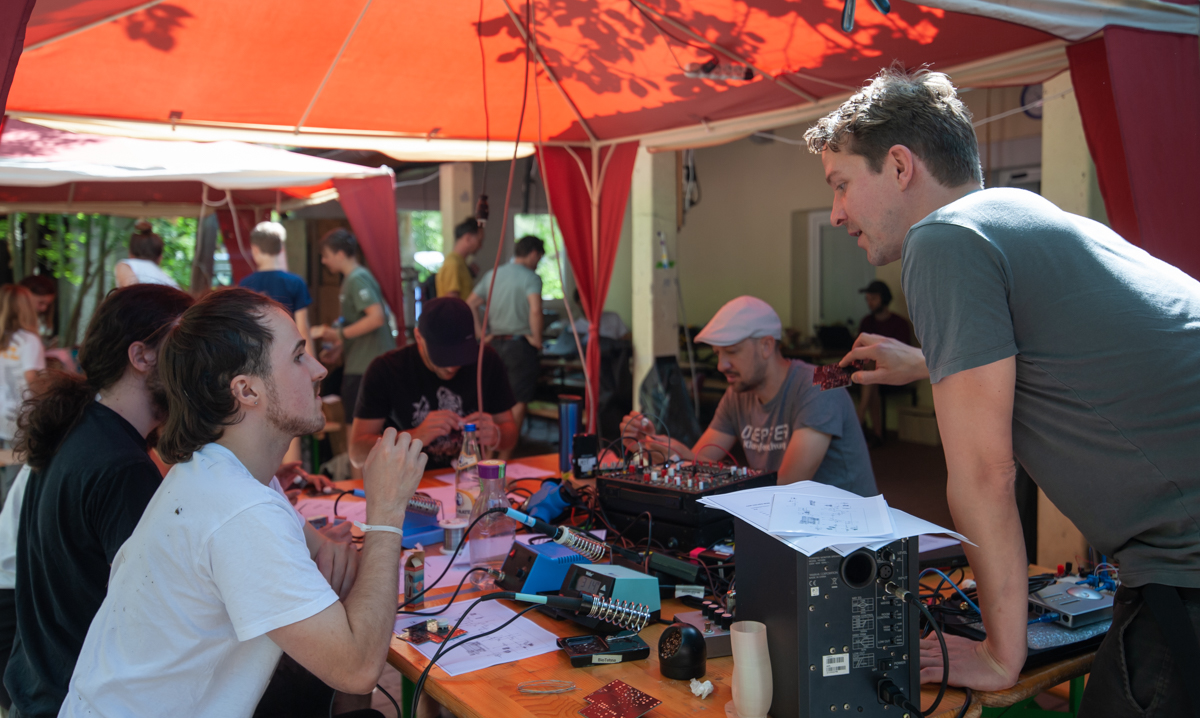
And than we moved back under the tent, where Alicia presented her brain rhythm synthesiser. She first demonstrated the sensor and the user interface that visualizes the frequencies of the brain rhythms and then presented the sonification software for the different classes of waves. As the headband sensor is entirely based on open source solutions and she wrote the program in MaxMSP, she set herself the goal of writing the program in the Pure Data environment at PIFcamp. If she succeeds, we will be able to hear the result on the eight-channel PA system in Blaž’s ambisonic dome! Hopefully soon!
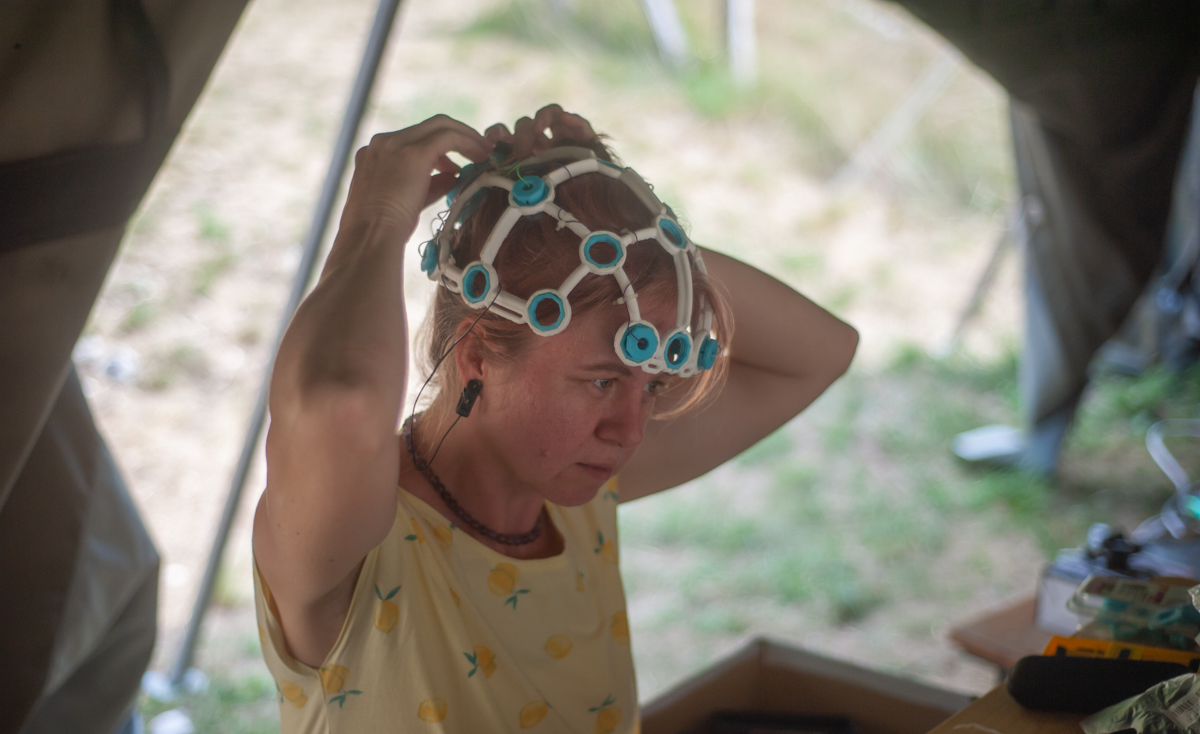
After lunch, August set up a collaborative radio station under the roof. He presented Mezcal, a browser-based tool he developed to diversify broadcasting and sound art practices, to provide alternative modes of communication for social movements and to create a new kind of technology for journalistic reporting. Roger also attended the workshop and was most impressed by August’s approach to collaborative broadcasting, which he sees as a communal sound composition. Participants also learned the principle in practice – they were divided into pairs and assigned an adjective that served as a cue for a sound improvisation. Roger and Thuen paired up to sound out the concept of health. The workshop was broadcast live by August on Mezcal and can still be heard there.
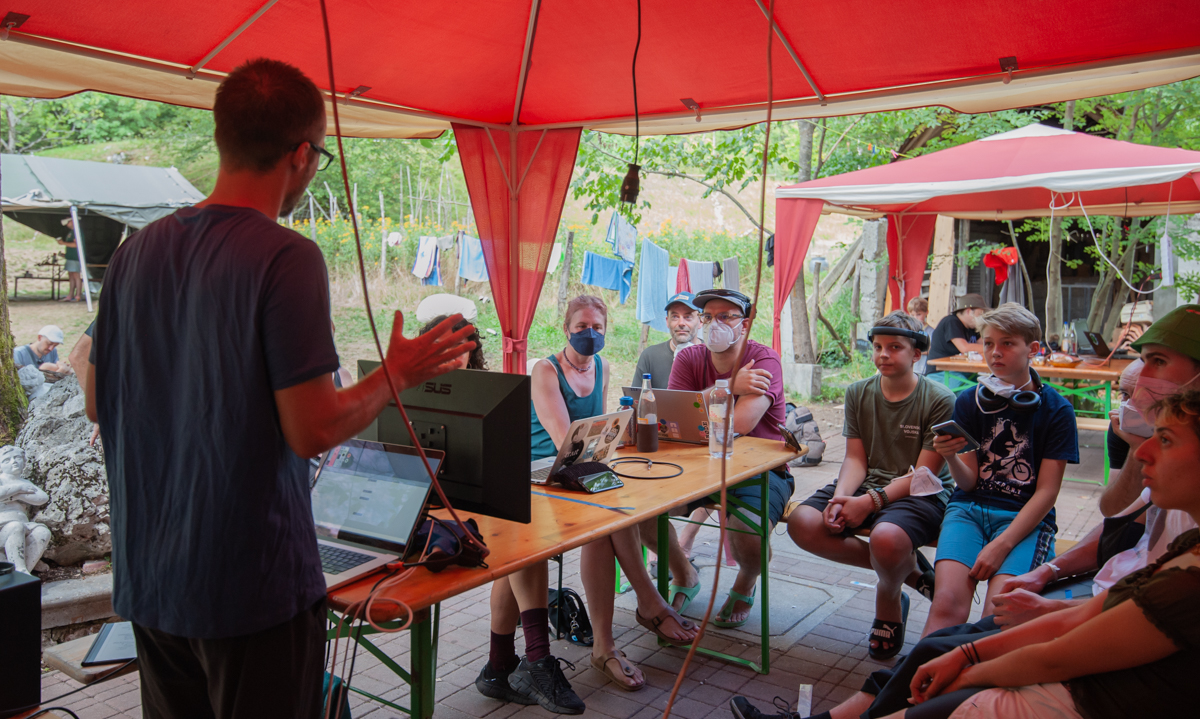
Meanwhile, artist Adriana Knouf joined us remotely via the web, from her residency in Copenhagen to present her artistic research project Foxes and Deeper Time. We talked to Eva and Nastja, two members of a team working on a prototype lichen observation system, about the event and the project itself. Adriana is a transgender artist who often focuses on space-related themes in her artwork. This offers her an escape from the sense of alienation that has been with her since childhood. Her current project links space travel with lichens, organisms that can survive in a vacuum.
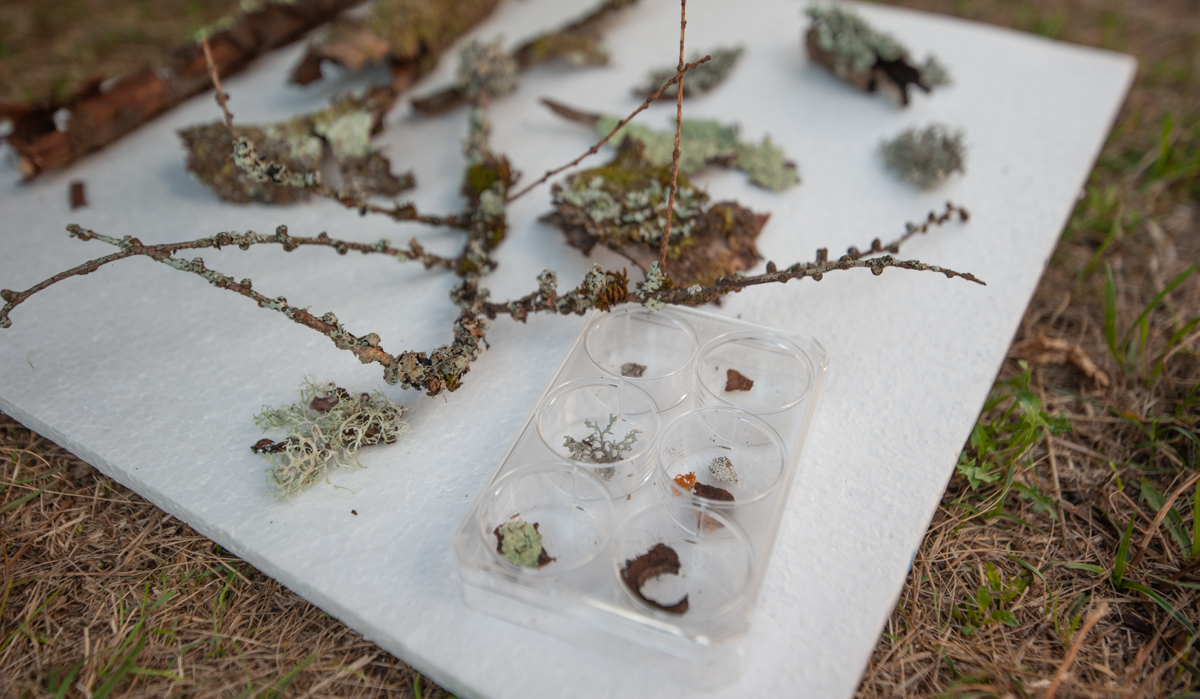
Adriana is developing a spacecraft for transporting lichens and is also researching the organisms, which have rarely been the subject of scientific research. The second major part of the project is the construction of a portable observatory, consisting of various sensors for organic functions and a camera. As Nastja points out, lichens grow extremely slowly – only one to two millimeters per year – so they need to build a robust device to observe and send data to the cloud. Eva also tells us that the team has carried out two expeditions to collect lichen samples along the Soča River for the lichen archive they are preparing as part of Adriana’s multi-year project.
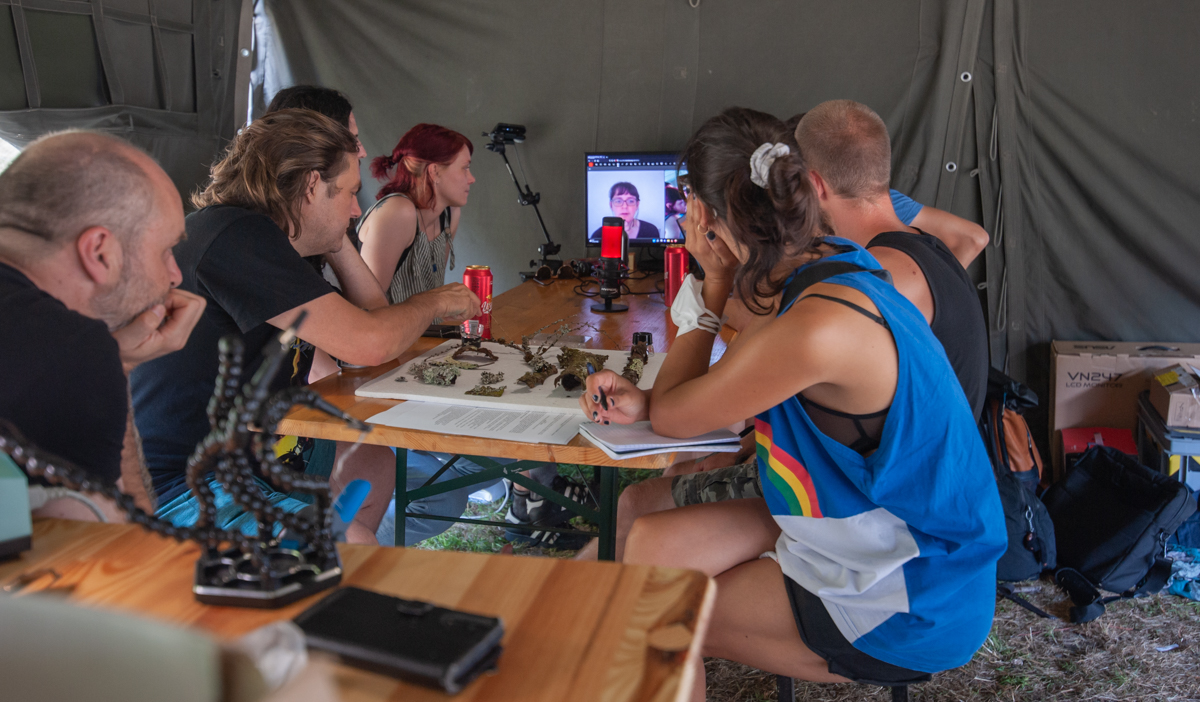
Before dinner, Marko Peljhan gave a comprehensive report on the recent large-scale fires in the Karst, which was listened to by a large group of PIFcampers. Marko’s company C-astral, which manufactures small unmanned aircraft systems, responded to a request from civil protection for help in mapping the fire. In just three days, they mapped some 4,500 hectares, and the images clearly show the aftermath of the devastating fire. Marko spiced up the otherwise serious subject with a number of anecdotes to entertain the gathered audience.
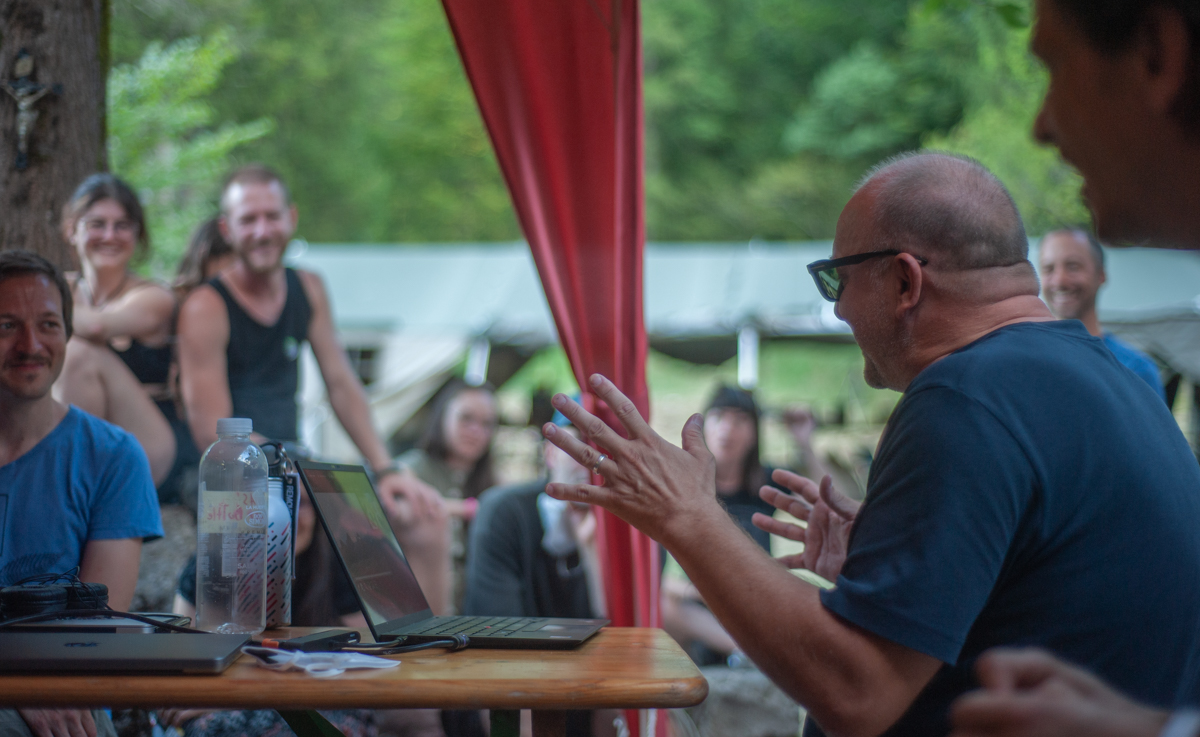
For the last report of the day, we returned to Thomas, who (admirable dedication! – after attending all the workshops that day) also visited Václav Peloušek‘s Auto-Tune workshop to round off the day. Václav’s excellent blend of instruction and personal experience was reinforced by numerous examples of compositions, and by presenting the history of this sometimes hated function, he showed that it can be used in so many ways that can actually add to the sound. Finally, participants tried their hand at Auto-Tune karaoke with a device that Václav launched in 2019 at PIFcamp. Fun for performers and the audience was guaranteed!
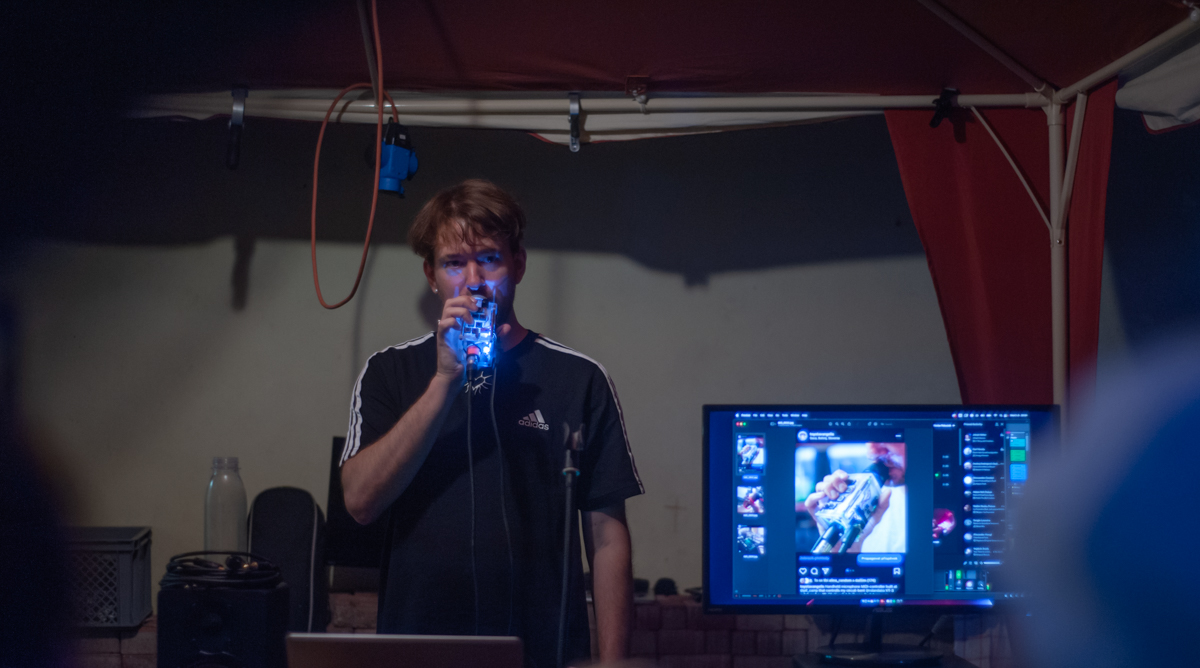
After the screening of the documentary Sisters with Transistors, most of the participants slowly went to rest, while a group of synth enthusiasts organised the opening jam session. Thursday’s event was even more varied, so you will read about it as soon as we finish processing all the impressions (short announcement: drones, lasers, synths, jam sessions, more jam sessions, breakfast rave). Don’t miss it!
